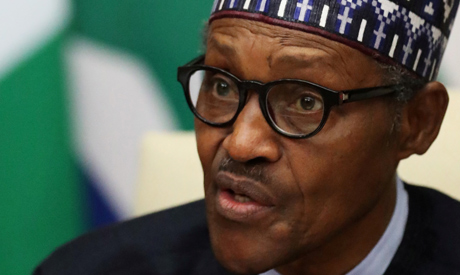

Nigerian President Muhammadu Buhari, in a rare interview, on Friday acknowledged the scale of security problems in two troubled regions, saying developments were "very, very disturbing".
Buhari came to power in 2015 vowing to crush a bloody jihadist revolt in the northeast, which has escalated while violence by criminal gangs has spread in the centre and northwest of the country.
Referring to the latter regions, Buhari said, "What is coming up in the northwest and north central is very, very disturbing indeed.
"I believe the military, the police and other law enforcement agencies, from the reports I am getting, I think they could do much better," he said on national TV.
"They could do much better, but we are keeping them on the alert all the time to do their duties."
Buhari, a 77-year-old former general, has typically had close ties with the military, often insisting that the country's security problems were under control.
His criticism of the security forces came only days after armed forces chief Tukur Buratai said he was "proud" that Nigerians "are living in peace, and Nigeria is safer now than... five years ago".
Boko Haram's insurgency in northeastern Nigeria has claimed more than 36,000 lives in 10 years and forced around two million people from their homes.
The jihadists have also stepped up their attacks in the Lake Chad region abutting Nigeria, affecting Niger, Chad and Cameroon.
Four people were killed late Thursday when rockets slammed into Maiduguri, the main town of Borno state, where Boko Haram first emerged.
Conflict of a different kind has gripped the northwest and north-central of the country, hitting the states of Zamfara, Kaduna, Sokoto and Katsina.
Here criminal gangs have spread terror in rural areas, stealing cattle, carrying out ransom kidnappings and carrying out ruthless raids on villages.
They are not deemed to have an ideological motive, although some commentators have warned that they could link up with jihadists, noting an ambush in Katsina that killed at least 23 troops.
Last week, the Senate passed a resolution calling for military chiefs to resign or be fired over the country's "deteriorating security situation".
The house also asked for an official investigation after a newspaper reported that 356 soldiers had asked "for voluntary retirement" early this month because of poor conditions and high risks.
|